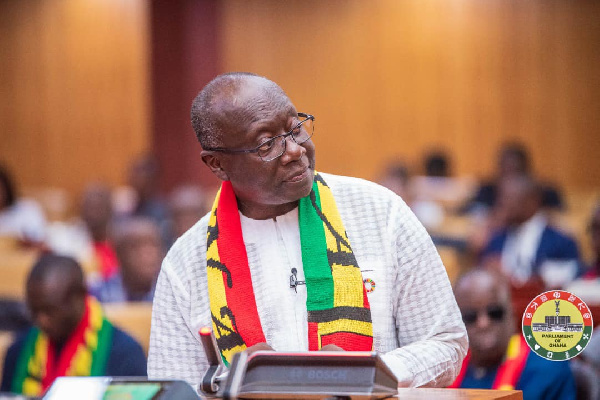A Report by the Joint Technical Committee set up by the Finance Ministry on the exclusion of individual bondholders under Domestic Debt Exchange Programme (DDEP), says Ghana can save about GHS 83 billion in fiscal readjustments.
The Forum in the Report recommended that the Government reviewed and made some specific adjustments to its revenue and expenditure to contain the current economic crises.
This came up during a Public Forum on Ghana’s Domestic Debt Exchange Programme dubbed: ” Ghana’s Debt Exchange Programme in context: A make or break for an IMF bailout or there are viable alternatives?”
It said oil production had dropped from over 200kbpd to below 160kbpd yielding revenue loss more than $300 mill (GH¢ 3.6 billion).
It, therefore, called on the Government to review the regulatory and fiscal environment.
The Forum said an estimated GHS 13.9 billion revenue was lost through financial irregularities of Metropolitan, Districts Assemblies per the Auditor-General’s report and the Government must pursue these funds.
Again, it said GH¢ 20 billion could be saved by privatising selected State-Owned Enterprises (SOEs) Tier-2 pension fund to drive efficiency and productivity.
Another recommendation was maintaining the 2022 capital expenditure level by reducing the Annual Budget Funding Amount of Ministries Departments and Agencies and foreign finance Capex provisions by 50 per cent, which will save Ghana about Gh¢ 10.7 billion.
Professor Godfred A. Bokpin, an Economist at the University of Ghana Business School (UGBS), said the overemphasis on debt restructuring to the detriment of creditors was not the way out.
He said the road to debt sustainability involved fiscal and structural adjustments and not solely dependent on debt restructuring.
“We agree that a certain level of debt restructuring is unavoidable but Ghana’s problem is largely governance. The governance problems manifest explicitly in economic mismanagement.” Prof. Bokpin said.
He said the country needed governance reforms in terms of product, market and broad structural reforms, which should be placed higher above fiscal adjustment and debt restructuring.
With fiscal adjustment, Prof Bokpin said there was significant room for expenditure-based fiscal consolidation that would not hurt growth.
Dr Patrick Asuming, an Economist and Senior Lecture, UGBS, said, it was imperative that the government did the fiscal adjustment, otherwise “we will revisit debt restructuring some time to come.”
“The fiscal is what generates the deficit and accumulates to the debt. If we do the debt operation and the fiscal side is not solved, we would virtually go back for another debt operation,” he added.
Dr Asuming said the debt restructuring was about lives that would be affected permanently, therefore, it was important that the citizenry came together and ensured that the right things were done for posterity’s sake.














